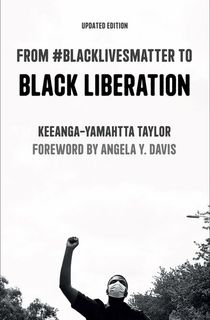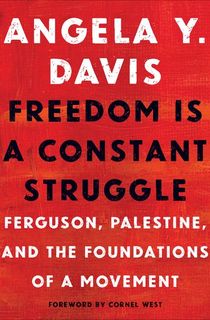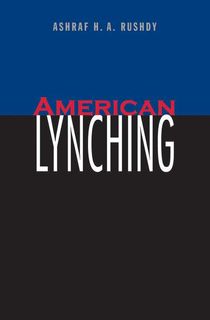Though the Civil Rights movement took place more than 50 years ago, we are still a long way from living in a truly equal society. In 2014, people in Ferguson, Missouri protested for more than two weeks after Michael Brown was shot and killed by police. Six years later, not much has changed: People are again taking to the streets with protests and riots after George Floyd was killed by a police officer kneeling on his neck.
To help understand the current unrest, we’ve put together this list of books that explain the history of race relations in America—and discuss how we can finally start making some changes.
Note: All affiliate proceeds from books purchased via this list will be donated to Black Lives Matter.

From #BlackLivesMatter to Black Liberation
In her analysis of the #BlackLivesMatter movement, activist and scholar Keeanga-Yamahtta Taylor examines the history of racism and how it has resulted in today’s inequalities, including unemployment and incarceration rates. She also explains how current struggles against police brutality may result in broader changes for equality.
A winner of the Lannan Cultural Freedom Prize for an Especially Notable Book, this work “not only exposes the canard of color-blindness but reveals how structural racism and class oppression are joined at the hip” (Robin D. G. Kelley, author of Freedom Dreams).

Freedom Is a Constant Struggle
You may already know Angela Y. Davis as the author of Women, Race, and Class. In this collection of essays, she turns her focus to state violence around the world.
While reflecting on the importance of intersectionality, black feminism and prison abolitionism, Davis uses these essays to delve into liberation movements throughout history, from the Black Freedom Movement to the South African anti-Apartheid movement.
Related: 10 Books for Black Men to Read

How to Be an Antiracist
Along with White Fragility, a book that has since been criticized for some of its theories, How to Be an Antiracist has emerged of one of the best selling books about race. According to Ibram X. Kendi, in the fight for equality, it’s not enough to simply be “not racist.” Instead, we need to identify as “antiracist” and actively work to oppose racist systems.
“Kendi dissects why in a society where so few people consider themselves to be racist the divisions and inequalities of racism remain so prevalent. How to Be an Antiracist punctures the myths of a post-racial America, examining what racism really is—and what we should do about it.”—Time

American Lynching
In 1998, James Byrd Jr was lynched in Texas. After seeing many people resist this label, author Ashraf Rushdy began to examine the long history of lynching in the United States. In his carefully researched history, Rushdy explores where the practice came from, how people have rationalized it, and how it has changed in meaning throughout American history. The result is a book that shows how lynching has endured and evolved—but never quite been erased—over the past 300 years.

So You Want to Talk About Race
Even in lower-stakes issues, race and racism can be difficult topics to discuss. Whether you have questions about why it’s not okay to ask to touch someone’s hair, why white people are privileged, or why a joke is racist, Ijeoma Oluo has answers. Her blunt guide covers everything from intersectionality and affirmative action to “model minorities,” giving readers the tools they need to have honest, informed discussions about race issues.
"Oluo gives us--both white people and people of color--that language to engage in clear, constructive, and confident dialogue with each other about how to deal with racial prejudices and biases."—National Book Review

City Kids, City Teachers
Racism has touched every part of our culture, including our school system. In this collection of essays, educators focus on the unique challenges of teaching in city schools, and issues that disproportionately affect students of color, including the criminalization of youth and unequal funding. Both a guide and a call to action, “City Kids, City Teachers has the potential to create genuine change in the learning, teaching, and administration of urban public schools” (Library Journal).
Keep Reading:
10 Books That Reveal What It's Like to Be a Person of Color in America
Read an Excerpt from Overcoming Hate Through Dialogue
Featured photo: Julia Wan / Unsplash


